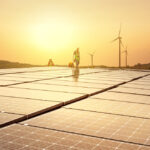Oil & Gas Publishers Note: Interesting opinion from the IEA. Not sure I agree, but good to know all opinions.
Governments of the world, take note. The International Energy Agency has a plan for you. If you take the sagely advice of the agency’s technocrats, you will do your citizens a huge favor as you struggle to recover from the ravages of the global Covid-19 pandemic. You will not only boost economic growth and increase employment but also push global greenhouse gas emissions into structural decline. Government planners of the world, unite! Help your people become richer while saving the world from climate change. Get your free copy of the plan, hot off the press (published June 18th).
 Alas, some of the world’s more skeptical citizens might be forgiven if they reach for their book of President Ronald Reagan’s quotes and come up with this: “The most terrifying words in the English language are: I’m from the government and I’m here to help.” While it is right to be wary of plans that promise a world where ‘all good things go together’, the considered views of the IEA – the world’s leading source of energy data and analysis — deserve our careful attention.
Alas, some of the world’s more skeptical citizens might be forgiven if they reach for their book of President Ronald Reagan’s quotes and come up with this: “The most terrifying words in the English language are: I’m from the government and I’m here to help.” While it is right to be wary of plans that promise a world where ‘all good things go together’, the considered views of the IEA – the world’s leading source of energy data and analysis — deserve our careful attention.
The plan comes with clear instructions (even if batteries are not included). Planners should “integrate” energy policies into government responses to the economic shock caused by the Covid-19 crisis. By integrating energy policies into governments’ recovery plans, they would “accelerate the deployment of modern, reliable and clean energy technologies and infrastructure”. What exactly are these energy policies that need to be integrated in the “Sustainable Recovery Plan”? Lets get into the weeds a bit.
Most of the “millions of new jobs” created through the plan “would be in retrofitting buildings to improve energy efficiency and in the electricity sector, particularly in grids and renewables.” Other employment generators would lie in promoting energy efficiency in industries and supporting low carbon vehicles and transport infrastructure. The IEA notes that “the costs of leading clean energy technologies such as wind and solar PV are far lower, and some emerging technologies like batteries and hydrogen are ready to scale up”.







